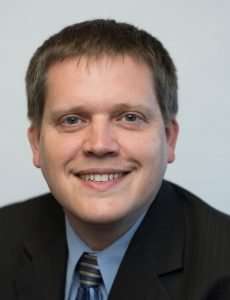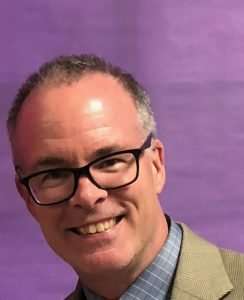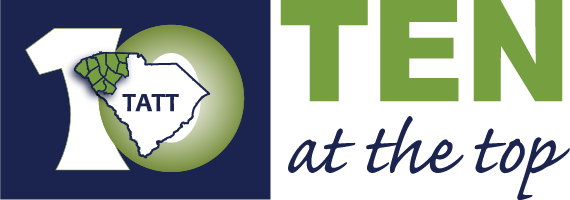
Mar 31, 2021 | Staying on Top
 As we start returning to in-person gatherings, TATT will be hosting a series of Friday morning informal “ReConnect” events where a small group of participants will get together to reconnect with others from across the Upstate. Each session will be limited to no more than 20 attendees and except for May 14th will be held in the Park 37 Community Room that has plenty of space for appropriate distancing.
As we start returning to in-person gatherings, TATT will be hosting a series of Friday morning informal “ReConnect” events where a small group of participants will get together to reconnect with others from across the Upstate. Each session will be limited to no more than 20 attendees and except for May 14th will be held in the Park 37 Community Room that has plenty of space for appropriate distancing.
Each session will be hosted by TATT Board members with topical discussion as well as time for mingling and getting to meet new people and renew relationships with others.
Below is the upcoming schedule. With the exception of the May 14th session, all will be held in the Community Room of the Park 37 Complex at 250 Executive Center Dr., Greenville, SC 29615. All sessions are free, but attendees must register in advance as spots are limited:
April 16 – 9:00-10:00 a.m. Hosts: Terence Roberts, Mayor, City of Anderson, and Angie Gossett, Marketing Director, BlueCross BlueShield of South Carolina; Topic: Open Discussion
Click Here to Register
April 23 – 9:00-10:00 a.m. Hosts: Carol Burdette, CEO, United Way of Anderson County and Dean Hybl, Executive Director, Ten at the Top; Topic: Reconnecting with Upstate Non-Profits
Click Here to Register
April 30 – 9:00-10:00 a.m. Hosts: D.J. Doherty, Partner, Mavin Construction, David Feild, Market President, Colliers International, and Todd Horne, Vice President of Business Development, Clayton Construction; Topic: Status of Development and Construction in the Upstate
Click Here to Register
May 7 – 9:00-10:00 a.m. Hosts: Stinson Ferguson, Special Counsel, Haynsworth Sinkler Boyd, P.A. and Joel Jones, COO, ReWa; Topic: Role of Water in the Economy & Quality of Life
Click Here to Register
May 14 – 9:00-10:00 a.m. Host: Dr. Galen DeHay, President, Tri-County Technical College (session being held at Tri-County campus in Pendleton); Topic: What’s Happening in Anderson, Oconee & Pickens?
Click Here to Register
May 21 – 9:00-10:00 a.m. Hosts: Jeff Field, Executive Director, Laurens County Water & Sewer Commission, Amanda Munyan, President, Laurens County Chamber of Commerce, and Brown Patterson, Chairman, Laurens County Council; Topic: What’s Happening in Laurens County?
Click Here to Register

Mar 25, 2021 | Staying on Top, Upstate Professional Planners
 Introduction video – https://vimeo.com/319348472
Introduction video – https://vimeo.com/319348472
Presentation by Tony Thomas on the history of Northside and community involvement
Presentation by Michael Williamson on the Northside Development Group
https://vimeo.com/497352828
Q: Have you begun to see positive community indicators as a result of this project in terms of employment, education, health, or income?
A: Absolutely, through job referral program, construction pipeline, working with Access Health, just received community health assessment, moving in a positive direction.
Q: Great project! Curious how much public money has gone into these efforts (City funds, HUD funds, etc) and how much private investment that has leveraged?
A: About $25M in private funds invested, leveraging $125 total investment. Successful in getting three new markets tax credits and three low-income housing projects. Strong partnership with the City of Spartanburg and sources such as neighborhood initiation program, acquired and demolished property through that program. A few years ago, Ben Carson from HUD and Senator Tim Scott visited and said this is the largest project with public and private partnerships, which will be wave of the future.
Q: Has the county been involved?
A: The study area is within city limits, but adjacent to the county line. County has been supportive with logistics, supporting programs. Many great partners throughout both.
Q: Love it! Are their plans for a hotel/convention space?
Many hotels downtown nearby to come, and possibly adjacent in county. Focus is on residential and building up community.
Storytelling at the Artlets to engage larger Spartanburg community starting with the gateway art project. Festival in September.
Q: Do you find that some of the residents would want (& benefit from) other multi-modal routes for getting to work and other destinations? If yes, what would they be?
A: Spartanburg has a new scooter program, there are bike rentals, and the neighborhood will connect to local trails. There is a bus route within the neighborhood, and yes, the plan is to increase mobility.
Q: Do you know the percentage of seniors in the Northside Community and do you have programs/development specific to senior needs?
A: 37-40%, and seniors supported with case management, homeowner assistance program, vaccine clinic, hiring a community health worker this year through a Duke Endowment grant.
Q: Where do you see NDG in ten years?
A: About five years of heavy redevelopment activity remaining, will shift to supportive entity providing services and community assistance, and provide oversight in potential community development.
Q: What role do the Northside Voyagers play in the community?
A: The project from inception was about finding out what the community wanted and needed, so building trust was first. No decisions are made without public workshops and Voyager involvement. There are 18 Voyagers, starting from 10 with the leadership of Stan Davis initially. Longevity and sustainability are key, and leadership development is provided. The transformation plan matches what has actually happened.
Q: How have you avoided gentrification?
A: This is an intentional process with projects including bringing back displaced persons to housing, programs for home buyers, down payment assistance, and bringing awareness of these programs to the community.
Q: Has the high cost of construction materials affected maintaining affordability goals?
A: Yes, but some materials were previously sourced. It is difficult to build a house for under $150K. Workshop tomorrow with Voyagers about this. Current low interest rates help. NDG working with partners with similar missions to ensure long term affordability.
Q: Are there conversations being had to bring concept out to other neighborhoods, such as Highlands.
A: In conversations with Highlands about assisting with their transformation plan. Tony has also worked with Southside and will work with others requesting assistance.
TATT Announcements:
Just us for our TATT Chat on Thursday and see https://tenatthetop.org/events/ for additional events. Look for May date for the Upstate Comprehensive Plan Review presentation.

Mar 24, 2021 | Staying on Top, UpstateVibe365

Sandy Abdelnabi, Ten at the Top Intern
Living in a global pandemic, times look much different for us all. None of us are or will ever be fully adapted to this new and distanced world and the effects it has had on our everyday lives. Whether it’s the way we speak to friends, the way a fun outing looks, or even a work/school setting. But, these changes have opened many doors to new and exciting opportunities!
People have been able to experience things they never thought they would. For example, students have the opportunity to participate in their classes from the comfort of their own home rather than in a physical school setting, most businesses now consist of a staff of remote workers encouraging them to make a “home office”, and people are motivated to create fun and exciting activities in their homes. For me, one of the most beneficial and memorable outcomes of this pandemic was being able to work for a company that dealt with the virus directly.
Beginning March 25th, 2020, I started working at a medical facility located in Greenville, SC called Vessel Medical. Founded in 1991 Vessel Medical originally put together surgical trays, sent them to sterilize, then shipped them off to surgeons around South Carolina.
During the outbreak of the novel coronavirus, Vessel medical, like many companies, switched gears in what they were producing and they began putting together at-home COVID-19 testing kits. In a white conditioned room, we dressed in lab coats, hairnets, and shoe liners and began packing. We would fill seven-foot racks with almost 1000 kits each. Because little was known about the virus, the testing kits looked much different than they do now. The kits consisted of a specimen cup, catheter, and a syringe filled halfway with saline. The kits were sent off to people and certain companies with a set of instructions that walked them through the process.
One had to put the catheter on to the tip of the syringe, put the specimen cup under the empty nostril and push the saline solution through one nostril out the other and into the specimen cup. They would then ship the sample back to the Vessel Lab where it would be tested for COVID. After enough kits were prepared (almost 10,000 a day) we switched back to the trays. Although, with a spike in cases, this did not last long.
The second time we switched back we were putting together swab test kits as they had proven to be more efficient. These kits consisted of a singularly wrapped swab and a tube filled with saline. The company slowly created a testing tent in front of the facility to process rapid results and ensure the employees had a safe, convenient, and affordable place to test as often as needed. They also began training nurses to travel around to universities in the upstate and provide testing for students.
Helping put together testing kits made me feel as though I was able to make a hands-on difference with the cases in SC in a time where one can’t do much besides mask up, social distance, and stay safe. I was able to learn more about the virus and ways to prevent it to keep myself and others safe.
It was an amazing experience seeing this company quickly adjust and grow in order to combat the swiftly adapting virus. What began as an unknown business has now bloomed into an entire community of people working to stop the spread of COVID-19. I was extremely thankful for the opportunity to be a part of this community and I am proud to share this experience with others. To learn more about Vessel Medical visit https://vesselmedical.com/about/.

Mar 24, 2021 | Staying on Top, UpstateVibe365

Scott Carr, VP Commercial Business & Communications, GSP Airport District
The one-year anniversary of the declaration of COVID-19 as a national emergency was on March 11, 2021. Passenger numbers at Greenville-Spartanburg International Airport (GSP) declined by 96% at the peak of the pandemic and remained down 60% from pre-pandemic levels throughout 2020. However, as coronavirus cases continue to decline, more people are vaccinated, and restrictions around the country are lifted, we are seeing more passengers returning to the skies and airlines increasing flights to popular destinations.
 On November 5, 2020, Southwest Airlines began new nonstop service to Houston, TX and on March 11, 2021, Silver Airways launched new flights to Jacksonville, FL, Orlando, FL, and Tampa, FL. At the same time, airlines that had suspended service due to COVID restrictions have started restoring those flights from GSP. American Airlines reestablished nonstop service to Miami, FL and Washington, D.C. United restored nonstop flights to Denver, CO. Delta brought back service to Detroit, MI. All six of our airlines have increased frequencies on current routes and GSP now serves 21 nonstop cities, which is the most in the airport’s history.
On November 5, 2020, Southwest Airlines began new nonstop service to Houston, TX and on March 11, 2021, Silver Airways launched new flights to Jacksonville, FL, Orlando, FL, and Tampa, FL. At the same time, airlines that had suspended service due to COVID restrictions have started restoring those flights from GSP. American Airlines reestablished nonstop service to Miami, FL and Washington, D.C. United restored nonstop flights to Denver, CO. Delta brought back service to Detroit, MI. All six of our airlines have increased frequencies on current routes and GSP now serves 21 nonstop cities, which is the most in the airport’s history.
To accommodate returning passengers, we have reopened restaurants and retail stores in the terminal building. The Kitchen by Wolfgang Puck, Baskin Robbins, Chick-fil-A, Dunkin Donuts, Flatwood Grill, Hudson, Tech On-The-Go, and Palmetto Distillery are all open for business. We anticipate the MAG Escape Lounge to reopen in the second half of 2021. Thomas Creek Grill and RJ Rockers Flight Room will reopen when passenger demand warrants. However, most likely, that won’t be until sometime in 2022. In addition, we plan to open a totally new restaurant concept in the Grand Hall during the second half of 2021. Stay tuned for more details on that exciting announcement.
 While passenger numbers have been reduced during the pandemic, we are experiencing a significant increase in cargo activity; particularly to and from GSP and international destinations. In 2020, cargo activity at GSP increased by 12%, setting a record for cargo tonnage at the airport. In fact, GSP now ranks #20 in the U.S. in terms of international freight and accounts for $4.37 billion in trade value. Over the past few months, GSP has welcomed a number of new cargo airlines to the region including British Airways, TUI, Mas Air, and more.
While passenger numbers have been reduced during the pandemic, we are experiencing a significant increase in cargo activity; particularly to and from GSP and international destinations. In 2020, cargo activity at GSP increased by 12%, setting a record for cargo tonnage at the airport. In fact, GSP now ranks #20 in the U.S. in terms of international freight and accounts for $4.37 billion in trade value. Over the past few months, GSP has welcomed a number of new cargo airlines to the region including British Airways, TUI, Mas Air, and more.
To ensure that the airport remained positioned to serve the region’s needs once air travel demand returned, work continued on several significant capital improvement projects during the pandemic. In November 2020, we opened a new Aircraft Rescue & Fire Fighting (ARFF) facility and we expect to take delivery of two new ARFF trucks in April 2021.
Enhancements to the airport entrance road and work to relieve roadway congestion at the airport also concluded during the first quarter of 2021. The improvements included the construction of a new 1,500-space economy parking lot and upgraded roadway signage. This summer, we will launch a new program allowing travelers to pre-book airport parking on our website. This program will provide customers with discounts on parking, rewards points, and a way to guarantee a space in their lot of choice for their trip.
 Maintaining a high level of safety, convenience, and efficiency has been and continues to be our priority. Our goal is to always provide a better airport experience for our customers. That is why we were so honored to be recognized as the “Best Airport in North America” serving 2-5 million passengers annually by Airports Council International. This recognition represents the highest accolade that an airport can achieve, as it is based on feedback gathered from customers using the airport over the past 12 months. Receiving this award is a high benchmark any time. However, receiving this recognition during a global pandemic speaks volumes for the support we enjoy from our passengers and the Upstate SC region.
Maintaining a high level of safety, convenience, and efficiency has been and continues to be our priority. Our goal is to always provide a better airport experience for our customers. That is why we were so honored to be recognized as the “Best Airport in North America” serving 2-5 million passengers annually by Airports Council International. This recognition represents the highest accolade that an airport can achieve, as it is based on feedback gathered from customers using the airport over the past 12 months. Receiving this award is a high benchmark any time. However, receiving this recognition during a global pandemic speaks volumes for the support we enjoy from our passengers and the Upstate SC region.
It may be a few years before we are again reaching our pre-pandemic passenger activity levels. However, rest assured that GSP remains committed to providing the region with a safe, clean, efficient, and modern airport offering convenient air service to the people and places that matter most to them. Thank you for supporting GSP during this unprecedented time and we look forward to serving you on your next flight from your hometown airport.
Please join us for an upcoming TATT Chat on April 15th, 2021 from 3:00-4:00 p.m. for “Latest News from GSP Airport” with guest speaker, Scott Carr! Register here.

Mar 19, 2021 | Staying on Top, UpstateVibe365

Dr. Michael Hedgecock, Program Manager, AnMed Health Behavioral Health Center
Guest Speaker, Dr. Michael Hedgecock, AnMed Health
Please watch the recording of the meeting to hear all of Dr. Hedgecock’s comments, and read his article in the TATT newsletter here.
Tips for maintaining mental health:
Drink plenty of water, eat well, and get enough sleep.
Don’t let yourself get to H.A.L.T.; hungry, angry, lonely, or tired.
Give yourself breaks. Step away from the desk, take a walk outside, listen to music, read a book, talk to a friend, connect with colleagues.
Communicate Constructively; compliments can be very powerful, problem solving feels good. Approach your boss with creative solutions more than with complaints. Connect with family and loved ones and tell them how they can help. Respect others’ differences and how they handle stress; some need to talk, some need quiet time.
Stay updated and rely on trusted resources and be mindful of time spent watching upsetting images on TV or computer.
Check in with yourself, watching for sings of depression, and reach out to peers, use EAP programs.
National Suicide Prevention Lifeline – 800-273-8255
Focus on what you can control and change.
Have open communications to build trust, reduce fears, and sustain the workforce.
Create opportunities to collaborate to increase innovation and connections.
Take time for yourself! Consider a mental health day.
Warning signs to watch for in loved ones and staff: irritability, isolation, not interested in job/grades, self-care.
County Updates
Laurens County – Dr. Asa Briggs, Program Director of Rural Psychiatric Services at Prisma
Goal: integrate psychiatry into primary healthcare
Prisma is expanding services to rural clinics for adults, children, young adults
Open four days a week in Oconee and Laurens – Connect Center Referral for both adolescent and adult services, 864-455-8988
Laurens County Healthy Initiative: healthy communities and looking at patients holistically; including mental health, starting conversations about mental health care (in a non-threatening way) in these areas, including telehealth options
Pickens County – Jessica Varney, Executive Assistant to County Adminstrator:
We have been selected as one of 10 sites in the country to participate in a project called Crisis Intersect Mapping. The team includes local, regional and state level people (military and civilians). It is a coordinated approach to offering more services to communities. Military and veteran populations are often overlooked and are at risk of suicide. September 2020 was Veteran suicide prevention month. The project is moving ahead and members are looking forward to spreading the word.
TATT Updates
Welcome to our new intern, Gracie Sandidge!
Greenville Chamber’s high school intern program – https://www.greenvillechamber.org/launchgvl
Check out our upcoming events at https://tenatthetop.org/events/
Join us for the next TATT CHAT: April 1 at 3pm: Health Care Update with Guest Speaker Dr. Sara Saccocio, Prisma Health. Register here: https://us02web.zoom.us/meeting/register/tZYofuuhqz8iHdUWk6BBTjyls0ucfffJBe1l

 As we start returning to in-person gatherings, TATT will be hosting a series of Friday morning informal “ReConnect” events where a small group of participants will get together to reconnect with others from across the Upstate. Each session will be limited to no more than 20 attendees and except for May 14th will be held in the Park 37 Community Room that has plenty of space for appropriate distancing.
As we start returning to in-person gatherings, TATT will be hosting a series of Friday morning informal “ReConnect” events where a small group of participants will get together to reconnect with others from across the Upstate. Each session will be limited to no more than 20 attendees and except for May 14th will be held in the Park 37 Community Room that has plenty of space for appropriate distancing.





 On November 5, 2020, Southwest Airlines began new nonstop service to Houston, TX and on March 11, 2021, Silver Airways launched new flights to Jacksonville, FL, Orlando, FL, and Tampa, FL. At the same time, airlines that had suspended service due to COVID restrictions have started restoring those flights from GSP. American Airlines reestablished nonstop service to Miami, FL and Washington, D.C. United restored nonstop flights to Denver, CO. Delta brought back service to Detroit, MI. All six of our airlines have increased frequencies on current routes and GSP now serves 21 nonstop cities, which is the most in the airport’s history.
On November 5, 2020, Southwest Airlines began new nonstop service to Houston, TX and on March 11, 2021, Silver Airways launched new flights to Jacksonville, FL, Orlando, FL, and Tampa, FL. At the same time, airlines that had suspended service due to COVID restrictions have started restoring those flights from GSP. American Airlines reestablished nonstop service to Miami, FL and Washington, D.C. United restored nonstop flights to Denver, CO. Delta brought back service to Detroit, MI. All six of our airlines have increased frequencies on current routes and GSP now serves 21 nonstop cities, which is the most in the airport’s history. While passenger numbers have been reduced during the pandemic, we are experiencing a significant increase in cargo activity; particularly to and from GSP and international destinations. In 2020, cargo activity at GSP increased by 12%, setting a record for cargo tonnage at the airport. In fact, GSP now ranks #20 in the U.S. in terms of international freight and accounts for $4.37 billion in trade value. Over the past few months, GSP has welcomed a number of new cargo airlines to the region including British Airways, TUI, Mas Air, and more.
While passenger numbers have been reduced during the pandemic, we are experiencing a significant increase in cargo activity; particularly to and from GSP and international destinations. In 2020, cargo activity at GSP increased by 12%, setting a record for cargo tonnage at the airport. In fact, GSP now ranks #20 in the U.S. in terms of international freight and accounts for $4.37 billion in trade value. Over the past few months, GSP has welcomed a number of new cargo airlines to the region including British Airways, TUI, Mas Air, and more. Maintaining a high level of safety, convenience, and efficiency has been and continues to be our priority. Our goal is to always provide a better airport experience for our customers. That is why we were so honored to be recognized as the “Best Airport in North America” serving 2-5 million passengers annually by Airports Council International. This recognition represents the highest accolade that an airport can achieve, as it is based on feedback gathered from customers using the airport over the past 12 months. Receiving this award is a high benchmark any time. However, receiving this recognition during a global pandemic speaks volumes for the support we enjoy from our passengers and the Upstate SC region.
Maintaining a high level of safety, convenience, and efficiency has been and continues to be our priority. Our goal is to always provide a better airport experience for our customers. That is why we were so honored to be recognized as the “Best Airport in North America” serving 2-5 million passengers annually by Airports Council International. This recognition represents the highest accolade that an airport can achieve, as it is based on feedback gathered from customers using the airport over the past 12 months. Receiving this award is a high benchmark any time. However, receiving this recognition during a global pandemic speaks volumes for the support we enjoy from our passengers and the Upstate SC region.
